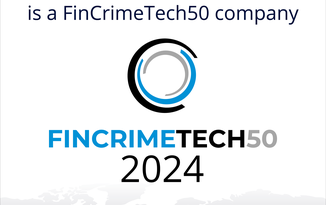With rents rising and the future of Section 21 up in the air, it has never been more important to have fair tenant checking processes.
According to Zoopla, average private rents in September were 4.6% higher than a year earlier, at £968 a month and are currently rising at the fastest rate in 13 years as strong demand outstrips supply. When you combine this with the fact that Government plans to scrap Section 21 notices - no-fault evictions that allow landlords to evict their tenants without giving a reason – we have a series of shifts that can have an enormous impact on society as a whole if this goes unmanaged.
We currently have a situation where rental properties are getting more and more expensive, and that even when tenants manage to secure one, there is a constant fear they could be thrown out – this is not a fair, equitable market for renters or landlords.
Alexander Siedes, our CEO and Founder, said while it is clear something needs to be done, he is not convinced that scrapping a landlord’s right to evict a tenant is the right solution, instead saying that giving landlords better visibility and insight into prospective tenants can mitigate the need to evict. He said:
“In my experience, there is always a reason why a landlord chooses to evict - it could be because the tenants are in arrears, or they are not meeting their legal obligations under the agreement. In some circumstances, the landlord may be struggling financially and need to sell the property, and surely they need to be able to sell their assets to avoid being forced into debt.
“I think there is a much bigger issue here around tenant discrimination and how good tenants are being effectively ‘blocked’ from renting while bad ones are slipping through the net - this is having a detrimental impact on the market as a whole, and it will continue to if the industry uses old measures to address new challenges.
“Currently, tenant checking - due diligence done on tenants - is traditionally done by insurance-led businesses who use it as a loss leader to cross-sell insurance. They have no incentive to do it well, and every reason to do it badly as it gives them the opportunity to upsell insurance. They rely on credit reference agencies and people for the checks, rather than technology, which means while they might be gathering the ‘necessary’ data, they have no clue what to do with it. They can’t spot rental fraudsters, and those who don’t have a credit file - which is common amongst internationals, the self-employed, or students - are forced to pay the rent upfront and are, ultimately, financially discriminated against. The result is that good but ‘invisible’ consumers are being denied properties, while fraudulent applications make it through the process, resulting in 8% defaults and 1.6% court possession claims in the private rented sector. This is a huge cost to landlords, much of which has to be recovered by increasing rents to mitigate further risks.
“With better access to data than ever before alongside huge advances in technology, it seems crazy that the rental market is still relying on such an old-fashioned, out of date and discriminatory process to approve tenants. Technology-enabled solutions, like ours, correctly validates and assesses a person’s identity, financial abilities and most importantly, their willingness to meet their legal and financial obligations, irrespective of the end-user’s profile. We are so confident in the accuracy of our systems that we also offer a guarantor service for tenants we have checked.
“Homeppl believes all consumers should have equal and fair access to properties and landlords should be protected from tenant fraud and the huge losses associated with it, and better tech-enabled checks offers a solution. It shouldn’t be a trade-off to support landlords and ensure renters are given a fair go.”



